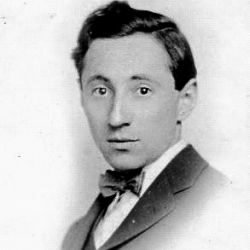Click the year to read the citations.
2025
Amanda Wunder, Spanish Fashion in the Age of Velázquez: A Tailor at the Court of Philip IV (Yale Univ. Press)
2024
Vera Keller, The Interlopers: Early Stuart Projects and the Undisciplining of Knowledge (Johns Hopkins Univ. Press)
2023
Meredith Martin and Gillian Weiss, The Sun King at Sea: Maritime Art and Galley Slavery in Louis XIV’s France (Getty Research Inst.)
2022
Emma Rothschild, An Infinite History: The Story of a Family in France over Three Centuries (Princeton Univ. Press)
2021
Susan North, Sweet & Clean? Bodies and Clothes in Early Modern England (Oxford Univ. Press)
2020
Margaret E. Schotte, Sailing School: Navigating Science and Skill, 1550–1800 (Johns Hopkins Univ. Press)
2019
Hugh G. Cagle, Assembling the Tropics: Science and Medicine in Portugal’s Empire, 1450-1700 (Cambridge Univ. Press)
2018
James Delbourgo, Collecting the World: Hans Sloane and the Origins of the British Museum (Belknap Press)
2017
Renaud Morieux, The Channel: England, France and the Construction of a Maritime Border in the 18th Century (Cambridge Univ. Press)
2016
Alexandra Shepard, Accounting for Oneself: Worth, Status, and the Social Order in Early Modern England (Oxford Univ. Press)
2015
John Rule and Ben Trotter, A World of Paper: Louis XIV, Colbert de Torcy, and the Rise of the Information State (McGill-Queens Univ. Press)
2014
Andy Wood, The Memory of the People: Custom and Popular Senses of the Past in Early Modern England (Cambridge Univ. Press)
2013
Daniela Bleichmar, Visible Empire: Botanical Expeditions and Visual Culture in the Hispanic Enlightenment (Univ. of Chicago Press)
2012
Ethan Shagan, The Rule of Moderation: Violence, Religion and the Politics of Restraint in Early Modern England (Cambridge Univ. Press)
2011
Alexandra Walsham, The Reformation of the Landscape: Religion, Identity, and Memory in Early Modern Britain and Ireland (Oxford Univ. Press)
2010
Francesca Trivellato, The Familiarity of Strangers: The Sephardic Diaspora, Livorno, and Cross-Cultural Trade in the Early Modern Period (Yale Univ. Press)
2009
Stuart Schwartz, All Can Be Saved: Religious Tolerance and Salvation in the Iberian Atlantic World (Yale Univ. Press)
2008
Anne Goldgar, Tulipmania. Money, Honor, and Knowledge in the Dutch Golden Age (Univ. of Chicago Press)
2007
Richard Sher, The Enlightenment and the Book: Scottish Authors and Their Publishers in 18th-Century Britain, Ireland, and America (Univ. of Chicago Press)
2006
Howard Brown, Ending the French Revolution: Violence, Justice and Repression from the Terror to Napoleon (Univ. of Virginia Press)
2005
Pamela Smith, The Body of the Artisan: Art and Experience in the Scientific Revolution (Univ. of Chicago Press)
2004
Ronald Schechter, Obstinate Hebrews: Representations of Jews in France, 1715-1815 (Univ. of California Press)
2003
Joseph Inikori, Africans and the Industrial Revolution in England: A Study in International Trade and Economic Development (Cambridge Univ. Press)
2002
David Bell, The Cult of the Nation in France: Inventing Nationalism, 1680-1800 (Harvard Univ. Press)
2001
Jonathan Israel, The Radical Enlightenment: Philosophy and the Making of Modernity, 1650-1750 (Oxford Univ. Press)
2000
Ruth MacKay, The Limits of Royal Authority: Resistance and Obedience in 17th-Century Castile (Cambridge Univ. Press)
1999
Adrian Johns, The Nature of the Book: Print and Knowledge in the Making (Univ. of Chicago Press)
1998
Carla Phillips and William Phillips, Spain’s Golden Fleece: Wool Production and the Wool Trade from the Middle Ages to the 19th Century (Johns Hopkins Univ. Press)
1997
Timothy Tackett, Becoming a Revolutionary: The Deputies of the French National Assembly and the Emergence of a Revolutionary Culture, 1789-90 (Princeton Univ. Press)
1996
Isabel Hull, Sexuality, State, and Civil Society in Germany, 1700-1815 (Cornell Univ. Press)
1995
J. Russell Major, From Renaissance Monarchy to Absolute Monarchy: French Kings, Nobles, and Estates (Johns Hopkins Univ. Press)
1994
Isser Woloch, The New Regime: Transformations of the French Civic Order, 1789-1820s (W.W. Norton)
1993
Jonathan Dewald, Aristocratic Experience and the Origins of Modern Culture: France, 1570-1715 (Univ. of California Press)
1992
Joseph Levine, The Battle of the Books: History and Literature in the Augustan Age (Cornell Univ. Press)
1991
Helen Nader, Liberty in Absolutist Spain: The Hapsburg Sale of Towns, 1516-1700 (Johns Hopkins Univ. Press)
1990
Richard Herr, Rural Change and Royal Finances in Spain at the End of the Old Regime (Univ. of California Press)
1989
Nancy Barker, Brother to the Sun King: Philippe, Duke of Orleans (Johns Hopkins Univ. Press)
1988
Roy Porter, Mind-Forg’d Manacles: A History of Madness in England from the Restoration to the Regency (Harvard Univ. Press)
1987
Carla Phillips, Six Galleons for the King of Spain: Imperial Defense in the Early 17th Century (Johns Hopkins Univ. Press)
1986
John Beattie, Crime and the Courts in England, 1660-1800 (Princeton Univ. Press)
1985
John Elliott, Richelieu and Olivares (Cambridge Univ. Press)
1983
Marianne Elliott, Partners in Revolution: The United Irishmen and France (Yale Univ. Press)
1981
Richard Westfall, Never At Rest: A Biography of Isaac Newton (Cambridge Univ. Press)
1979
Robert Darnton, The Business of Enlightenment: A Publishing History of the Encyclopedie, 1775-1800 (Harvard Univ. Press)
1977
Simon Schama, Patriots and Liberators: Revolution in the Netherlands, 1780-1813 (Alfred A. Knopf)
